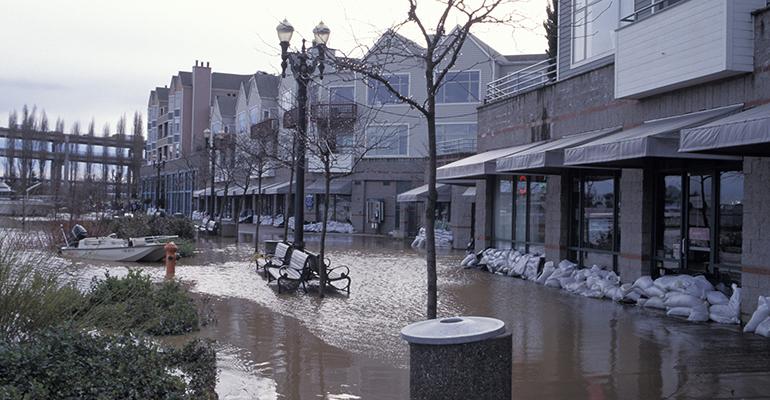It was a summer of disaster with multiple hurricanes, floods and fires. From Puerto Rico to the Pacific Northwest, restaurant operators are in the process of working with their insurance providers to assess damage to property and business.
Whether or not your business was impacted, now is the time to think about insurance protection for the next natural disaster, said attorney Linda Kornfeld, vice chair of the insurance recovery practice for law firm Blank Rome LLP, based in Los Angeles.
“With every natural disaster, insurance companies respond in a certain way, and that can be an education for the insured,” said Kornfeld.
“There’s no question that weather patterns are changing and the risks of damage from a natural disaster is real,” she added. “So it’s important in the next few months, as policy holders are renewing their property and business interruption policies, that they carefully read their policies to make sure the various types of losses they may incur would be adequately addressed going forward.”
Here are some strategies for rethinking insurance before the next natural disaster:
Consider your sub-limits.
Property policies tend to have a limit of liability, but also sub-limits for certain types of loss. In many instances, a business will have sub-limits set too low to cover the risks of loss that exist for that type of business, she said.
Following the California wildfires, for example, wine makers witnessed how vineyards and structures could be damaged, but also the potential impact on grapes already harvested, and the business interruption resulting from power outages, smoke, lack of staff and closed roads.
“The ongoing expenses you incur while closed, or while customer access is restricted, would generally be covered, as well as any extra expenses you incur to get back to normal operations,” she said.
Use your data.
Restaurant and hotels are very dependent on first-time guests. One happy customer tends to result in recommendations that bring in more customers. But when disaster hits, a business can not only lose that guest, but also the potential traffic that guest’s recommendation may have generated.
Restaurants today have more data to tap than ever to demonstrate traffic and sales trends.
“You can protect against that kind of loss if you have data that supports your business model,” said Kornfeld. “If you have information or evidence you can use to support the reality of that model, that can help to support a claim for lost profits due to a one-time natural disaster event.”
Consider your suppliers.
Your business may not operate in an area that’s at risk of fire or flood, but your suppliers’ business might.
“If your suppliers are in a risky zone, and if you need your suppliers to be up and running, there’s coverage within policies for contingent business interruption, which can protect you if those you need to run your business are not operating at full capacity,” Kornfeld said.
Communicate carefully.
When filing a claim, it’s important to know the language of your policy and what it covers.
“Characterizing your claim in a manner that’s favorable to coverage can ultimately be critical in your attempt to recover,” said Kornfeld. “Communicate carefully so as not to walk into potential coverage issues.”
Work with an experienced broker.
After a natural disaster, it’s not uncommon for insurance rates to go up “for a period,” said Kornfeld, and there’s often an attempt by insurance providers to narrow coverage.
“Working with a very experienced insurance broker can help,” she said. “That person with knowledge of the market may be willing to find an insurer more willing to provide coverage at a lower cost.”
Contact Lisa Jennings at [email protected]
Follow her on Twitter: @livetodineout





